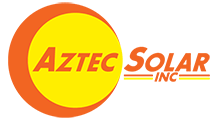The rising costs and unpredictability of traditional utility services make you want to look the other way. So why not set your eyes on the alternative: clean, reliable, and affordable green technology?
While solar power technology is the logical answer, some homeowners may believe their home is not solar-panel compatible.
If you envision a brighter future powered by clean and affordable renewable technologies, then solar panels could be for you. Here are five reasons why your home may be solar compatible.
Sunlight roof exposure
While it’s hard to see, your rooftop may be hit with a lot of energy from the sun every day.
Roofs that get their sunlight from a southern exposure are ideal, but east and west exposures will also do. Even smaller roofs are candidates for solar installs. Remember, depending on the energy needs; you can land a big punch of energy efficiency within a relatively small square footage of rooftop space.
Solid regional sunlight coverage
If you step outside and can see California sunlight, chances are your home qualifies for solar hardware.
Even if you reside closer to the foothills or Sierra, where snow can outmatch sunlight on some days, solar panel technology remains an option. The truth is that solar panels work in most climates and are becoming more efficient.
Be aware that other buildings, trees, vent, chimneys, and other larger obstacles, however, can deeply reduce your roof’s sun exposure.
Roof is in good condition
The diversity of roof types in the region is wide. And while solar panels do better on some types than others, a bigger test might be the roof’s age and condition.
Generally, a newer roof will pose no significant challenges and are excellent candidates for solar installs. Metal and composite roofs are preferred given their durability. Because some solar install components will be drilled, the age and material of the roofing are critical. The integrity of the waterproof barrier is on the line.
Remember, you can also decide to install solar panels elsewhere on the property as an alternative.
Roof will last decades
Yes, a roof in good condition is necessary. But given the longevity of solar panels, homeowners must also be confident that their roofs can keep up.
If you live in a newer housing community, there may be no concerns regarding your roof’s ability to meet the test of time. To maximize your solar investment, be sure to discuss roof lifespans and how it can impact your solar project.
You pay taxes
Did you know that you qualify for a substantial federal tax break when you decide to switch to solar?
The federal government recently extended the solar investment tax credit, offering homeowners (and commercial entities) a big tax break. If you act this year, you can expect a 26% tax credit toward all related costs of the solar install. The rate stays the same in 2022 before it drops to 22% in 2023.



Recent Comments